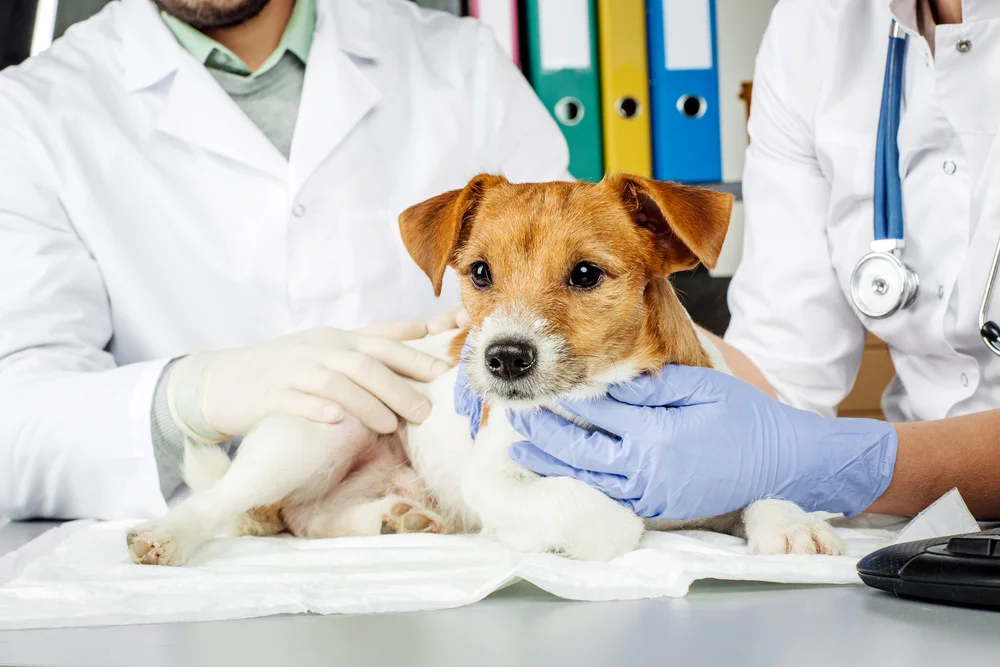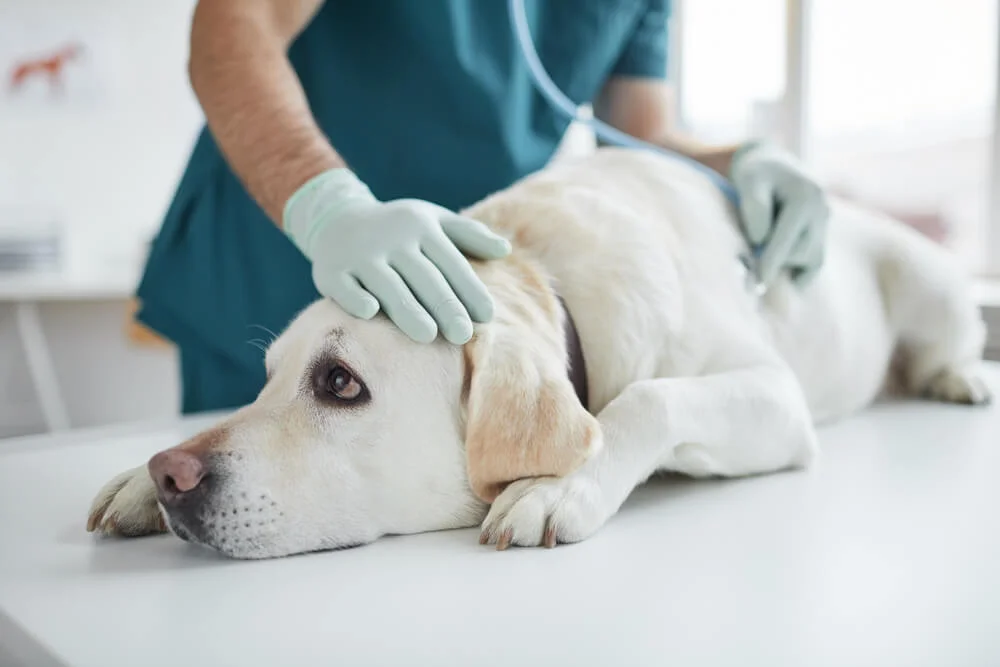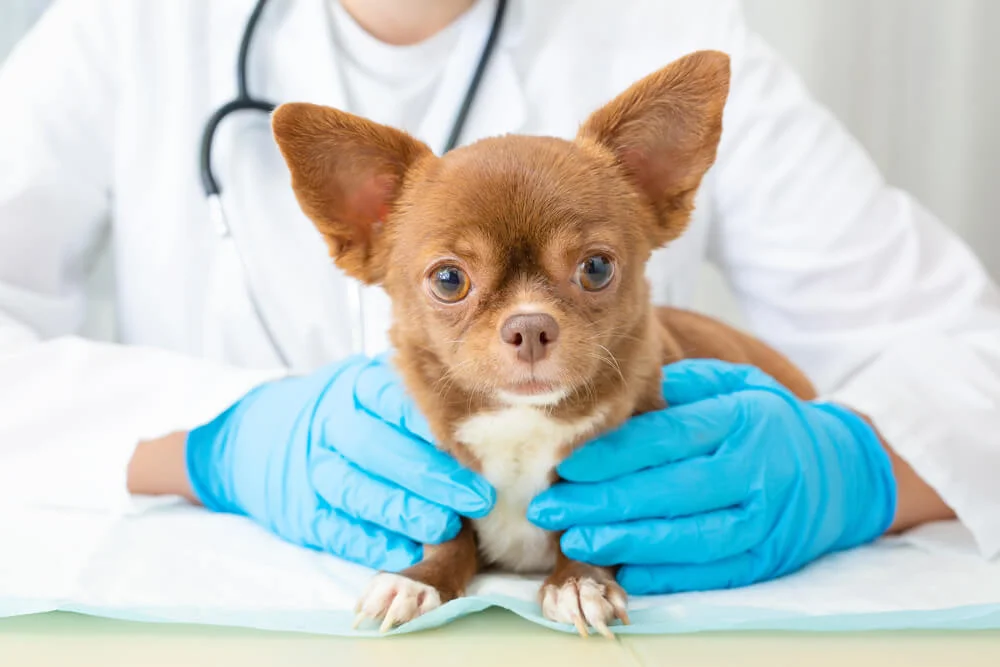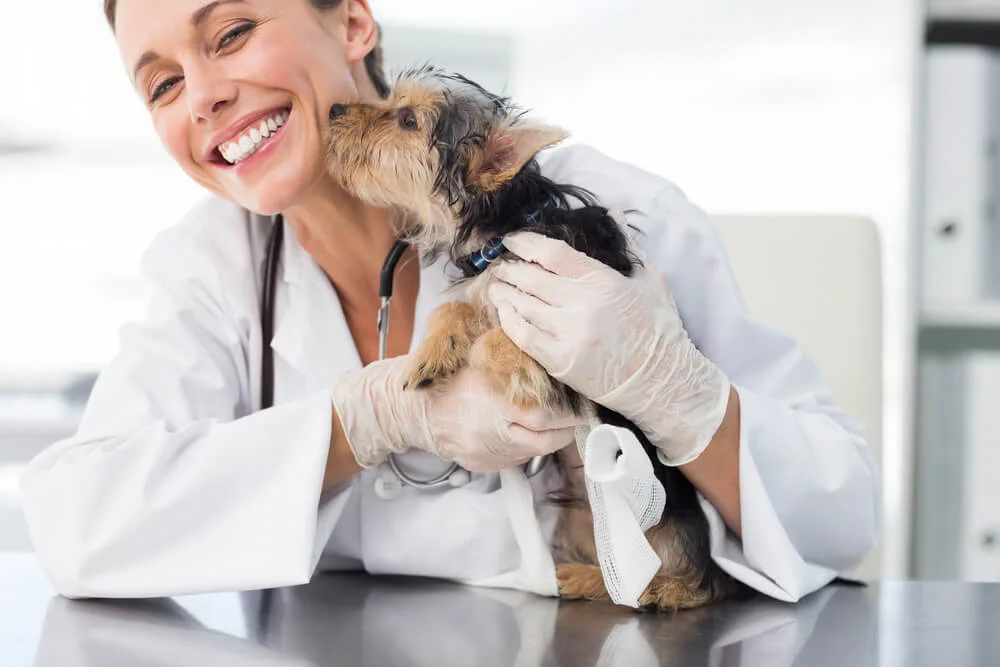
Have you ever found that your dog has developed runny poops after a stressful event? This can often be a huge worry for many pet parents, but did you know this is quite common and is termed “stress colitis.” In this article, we will learn a bit more about this condition and what can be done to help your canine companion.
What is colitis?
Colitis is the medical terminology for inflammation of the large bowel – the colon. It is a term commonly used to describe diarrhea or loose stools resulting from issues in the large bowel. The term can be used interchangeably with large bowel diarrhea. Many things can cause colitis, including stress, diet, allergies, infections, trauma, and primary inflammatory bowel disease (a complex and incompletely understood condition).
What is “stress colitis”?
Stress colitis is the development of inflammation of the large intestine, colitis, after a stressful event. It may result, for example, after boarding or after day-care trips. It is also quite common after your pet has been to the veterinary clinic or has had an operation.
What symptoms might my dog show with “stress colitis”
The symptoms your dog may show if they have colitis include:
- Frequently passing feces
- Passing small volumes of unformed to liquid poop
- The stool may be covered in mucus or seem “jelly-like.”
- Small amounts of fresh, bright red blood may be seen near the ending of passing a poop

Stress colitis is the development of inflammation of the large intestine, colitis, after a stressful event.
How is stress colitis diagnosed?
A diagnosis of stress colitis is often made based on your pet’s history (which likely includes a stressful event), their clinical signs, and a physical examination which may include a rectal exam. However, as there are many different possible causes of colitis, your veterinarian may recommend some investigations. These will be dependent on your dog’s history and clinical presentation; a dog who has recurrent signs of colitis, has other medical problems in their history, or is very clinically unwell is more likely to be advised testing initially. Your veterinarian will be able to discuss why they think the testing is appropriate and the associated costs with you in your consultation. These investigations may include blood work, stool samples, imaging, or camera studies for intestinal biopsies.

A diagnosis of stress colitis is often made based on your pet’s history (which likely includes a stressful event), their clinical signs, and a physical examination which may include a rectal exam.
How can I help my dog with “stress colitis?”
Most dogs with stress colitis will get better without medical intervention within 2-5 days. Your dog should always have a plentiful supply of fresh water available. Historically the recommendation was to starve a dog with colitis to “allow the gut to rest” however, we now know the importance of food within the intestines for gut healing. An easily digestible, high-fiber diet can be helpful for dogs with colitis. In cases of acute colitis, lower fat dietary options are preferable. Look for companies whose websites contain a full AAFCO nutrient profile listing their fiber and fat contents. It is important to note that a sudden change in diet can also cause colitis, so make sure to transition to a new diet slowly if you’re needing to make a change. Your veterinarian can advise you if their current food is suitable for colitis or not.”
Your veterinarian may recommend probiotics or additional fiber supplements to help improve gut health and normalize digestion times for your pup; these may be beneficial in preventing stress colitis ahead of a known stressful event. Sometimes dogs may feel sick, so your veterinarian may advise an anti-sickness medication.
If your dog is unwell with colitis, your veterinarian may suggest admitting them to be placed on a drip and for more aggressive medical management.
Antibiotics are rarely ever indicated in the management of colitis and can make your dog’s diarrhea worse by upsetting the good bacteria within the intestines.

You should also seek veterinary care immediately if there is any chance your dog’s clinical signs result from ingestion of a poison or toxin.
When should I call my veterinarian?
Providing your dog’s bright, happy, and eating and drinking normally at home, monitoring them, and providing supportive care for the first 48-72 hours is OK. However, if your dog is showing any of the following signs, then you should seek veterinary care:
- Your dog seems lethargic or sad
- Your dog loses her appetite or isn’t drinking well
- Your dog is drinking excessively or peeing more than normal
- Your dog is vomiting
- Your dog is passing large amounts of fresh blood in the stool, or your notice anything that looks black or tarry in the stool
- Your dog appears to be losing weight or has recurrent episodes of colitis
- Your dog is collapsed or is unable to stand
You should also seek veterinary care immediately if there is any chance your dog’s clinical signs result from ingestion of a poison or toxin. If you are concerned, it is better to speak to your veterinarian than taking a wait-and-see approach.
Final Thoughts
Any stressful event can trigger stress colitis, which can be a worrying time for a pet parent. Rest assured that the vast majority of cases will resolve quickly. Still, if you are worried about your pet or their signs are not improving, it is important to speak to your veterinarian.
FAQs
How long does stress colitis last in dogs?
Stress colitis in dogs is usually short-lived, typically resolving in 2-5 days.
Can anxiety cause colitis in dogs?
Yes, some dogs with anxiety may develop signs of stress colitis. However, if your dog is anxious and you notice recurrent signs of diarrhea, it is always worth speaking to your veterinarian as there may be a more serious underlying medical reason that needs addressing.
How do I know if my dog has stress colitis?
If your dog develops diarrhea after a stressful event, it may be stress colitis. Signs include straining to poop, passing loose stools, and urgency to poop. Sometimes the stool may contain mucus or small amounts of fresh blood. Many things cause colitis, so if you a worried about your dog, then speak to your veterinarian for advice.
What can I give my dog for stress colitis?
If your dog has stress colitis, provide plenty of fresh water and an easily digestible diet. Your veterinarian may advise additional treatment. Never give your dog human medication unless under the direct guidance of your veterinarian.



